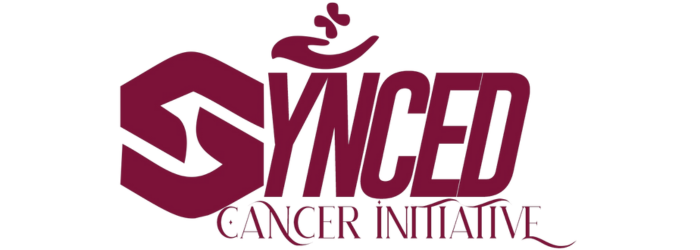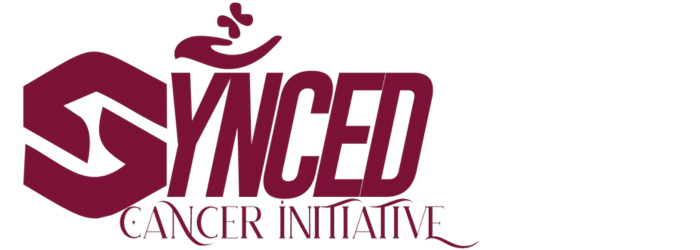Cancer care in Nigeria is becoming increasingly expensive and challenging to access, making it a serious public health concern.
Radiation therapy for breast cancer care in Nigeria cost ranging from ₦1.5 million to ₦2 million, while a single dose of certain injections for prostate cancer care in Nigeria cost ranging from $20,000 to $25,000. This demonstrates the financial burden that many patients face.
Patients and their families are severely financially affected by this. To pay for therapy, many are compelled to use crowdsourcing or spend all of their life savings.
Numerous factors contribute to the high cost, such as the importation of specialist medications and equipment, the scarcity of cancer treatment facilities, which raises demand and expenses, and the exclusion of cancer care from national health insurance schemes, which prevents many people from accessing it.
According to the World Health Organization (WHO), Nigeria has a serious cancer issue with 127,763 new instances of cancer in 2022, comprising 48,096 men and 79,667 women.
Prostate, breast, colorectal, liver, and cervical cancers were the most prevalent forms, with 269,109 active cases over a five-year period. Unfortunately, cancer claimed the lives of 79,542 people in 2022 alone.
Additionally, the data showed that 79,542 people died of cancer in 2022, with prostate cancer having a 7.4% chance of dying before the age of 75, 8.7% for Colorectum, and 8.0% for Liver cancer.
The statistics highlight the pressing need for a comprehensive and well-thought-out strategy to continuously enhance cancer care in Nigeria.
Lack of awareness and understanding regarding early detection is one of the main obstacles to providing good cancer care in Nigeria. In Nigeria, cancer therapy is becoming increasingly individualized, with each patient’s needs being taken into account. Nevertheless, a large number of Nigerians are ignorant of the significance of early screening, which results in delayed diagnoses and worse outcomes.
Genetic predisposition and family history: Some diseases, like prostate and breast cancer, have a family history. For people with a family history, early screening can greatly lower chances.
The HPV vaccine is essential for avoiding cervical cancer. Sadly, false information and misconceptions regarding its safety have resulted to low intake. Public health campaigns are needed to educate the populace and dispel these myths.
Dr. Francis Durosinmi-Etti a Leading oncologist of the Nigeria Sovereign Investment Authority and Lagos University Teaching Hospital, Idi-Araba Cancer Center, stated that in order to close the care gap, it is necessary to address problems with prevention, diagnosis, and treatment, the lack of healthcare human resources, palliative and terminal care, as well as government initiatives and partnerships.
He stresses the significance of preventative actions and early identification. In order to prevent future cases, he supports broad HPV vaccination and genetic testing in families with a history of cancer.
Nigeria faces numerous challenges in the detection and treatment of cancer, including:
- Limited diagnostic facilities: Immunohistochemistry (IHC) is one of the many crucial diagnostic tests that are not readily available in the area. In order to determine the type of cancer and customize treatment, these tests are essential. Samples are now frequently shipped overseas, which raises expenses and causes delays. Efforts are underway to establish these facilities in Nigeria.
- Accessibility of treatment: The nation has very few cancer treatment facilities, most of which are located in cities. Long travel times for patients in isolated regions result in extra expenses and stress.
Dr. Durosinmi-Etti emphasizes the necessity of additional treatment facilities and enhanced diagnostic capacities. He points out that by facilitating prompt and precise treatment, local access to cutting-edge testing would not only lower expenses but also enhance patient results.
Now that we’re talking about cancer care in Nigeria, cancer treatment costs are substantial, with some drugs costing up to ₦1 million per dose. Patients are frequently forced to turn to friends, relatives, and nonprofit groups for financial support due to the extreme financial burden they are under.
Taking care of this problem prompts us to consider the inclusion of cancer care in Nigeria in national health insurance. However, only six accredited facilities in Nigeria are able to treat patients, and even then, patients rarely receive more than one million. Given the high expense of treatment, the majority of patients receive insufficient financial assistance.
Throughout months or years, routine follow-up visits are frequently necessary for cancer treatment. These follow-ups are costly and add to the financial burden on patients.
Accessibility to cancer treatment facilities is also a challenge, cancer patients must travel long distances to receive treatment because not all areas of the nation have access to these institutions. The enormous population and distances involved continue to be major hurdles.
To close the gaps in cancer care in Nigeria, it is admirable that the public and private sectors are work together. Projects like the collaboration between the Lagos University Teaching Hospital (LUTH) and the Nigeria Sovereign Investment Authority (NSIA) are assisting in filling some of these gaps.
The lack of qualified medical personnel in Nigeria is another major challenge to providing effective cancer treatment. Nigeria is severely lacking in pathologists, nurses, and oncologists. It is crucial to enhance working conditions, pay, and professional growth possibilities in order to draw in and retain qualified healthcare workers.
Palliative care is essential for managing pain and enhancing quality of life for patients with advanced cancer, according to Durosinmi-Etti. However, many patients cannot afford the required drugs and therapies, and access to palliative care services is restricted.
Most people cannot afford some therapies, such Radium 223 for prostate cancer, which range in price from $20,000 to $25,000. He stresses how crucial it is to put the comfort of the patient first and look into more affordable, alternative therapies.
Cancer rates are rising worldwide. Over 35 million additional cases of cancer are expected to occur each year by 2050, a 77% rise from 2022. Ageing populations, changes in lifestyle (such as increased alcohol and tobacco use), rising obesity rates, and environmental issues (such as air pollution) are the main causes of this trend.
It is obvious that addressing the cancer care in Nigeria epidemic calls for teamwork. Government programs, business sector collaborations, and public awareness efforts are all crucial to enhancing the availability and quality of cancer care in Nigeria.
We can significantly close the gap in cancer care in Nigeria and lessen the burden of the disease with persistent work, investments in public education, and healthcare infrastructure.
Reference
Business Day- https://businessday.ng/health/article/cancer-care-in-nigeria-a-deep-dive-into-numbers-cost-closing-care-gap/
Accessed 27th November, 2024










What do you think?
It is nice to know your opinion. Leave a comment.